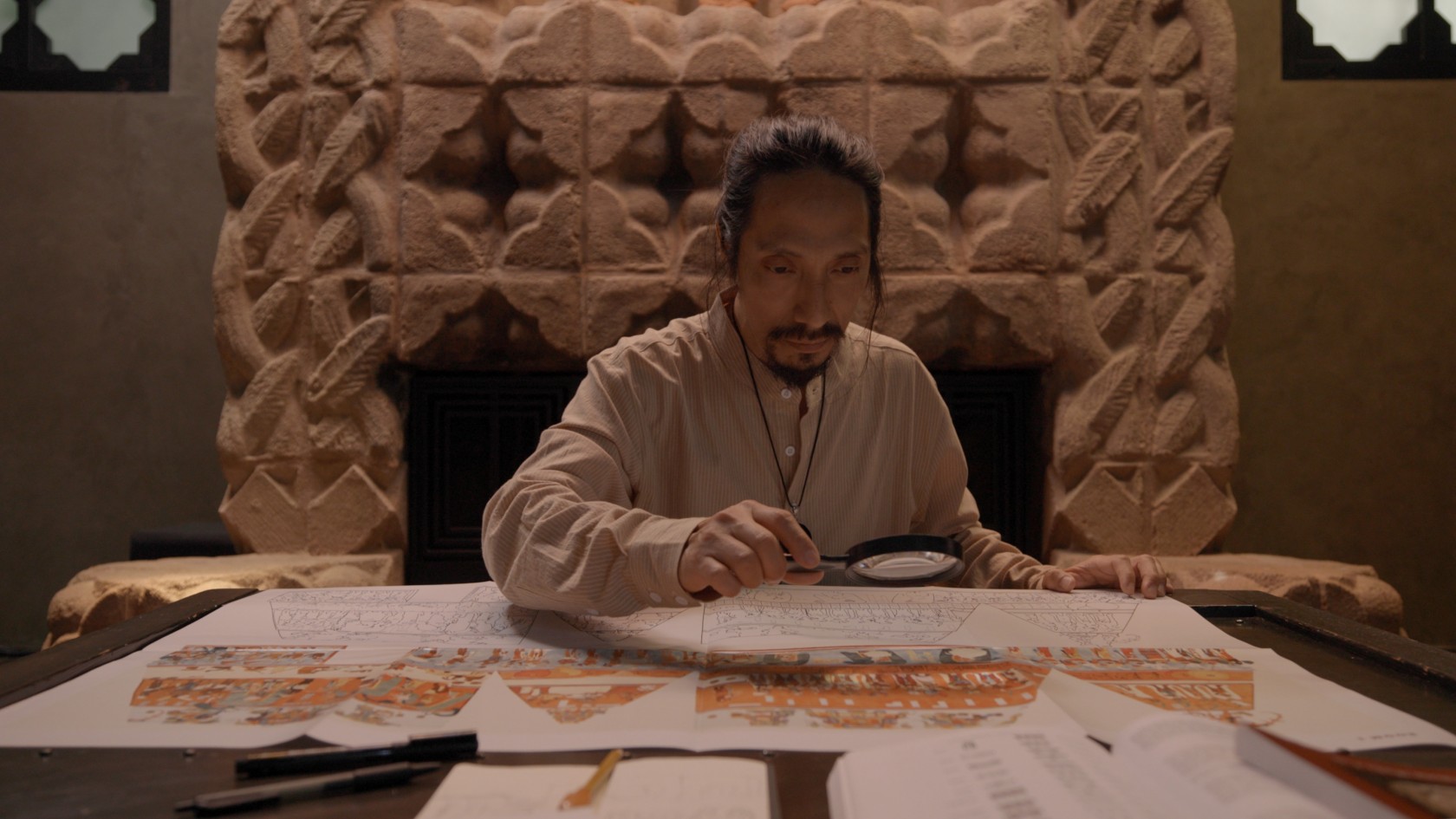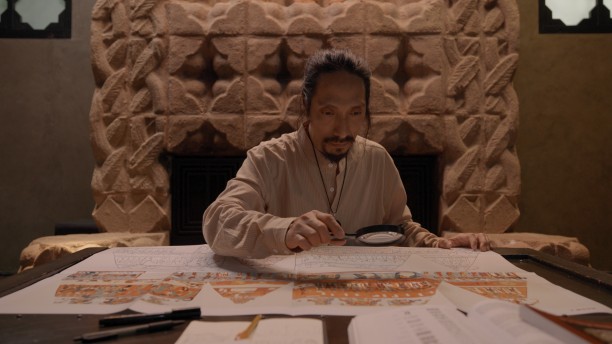MOCA Artist Film series is an active and dynamic platform for the presentation of artist films. Inspired by film and video works in MOCA’s renowned collection, the series will offer engaging and notable screenings and live programs with MOCA collection artists and beyond. With presentations in the Ahmanson Auditorium, screenings and Q&As will feature artists, historians, and critics in dialogue with special focus on experiments in long-form, narrative or feature-length films. Centered in the cinema capital of the world, these programs will explore the critical issues of our time and our place.
MOCA presents a screening of Mojo’q che b’ixan ri ixkanulab’ / Antes de que los volcanes canten / Before the Volcanoes Sing followed by a conversation with artists Clarissa Tossin and Tohil Fidel Brito Bernal.
The film undertakes a richly sensory journey across moments, languages, and music, roaming through architectural spaces that are variously imagined and real, cosmological and colonized. Commissioned by EMPAC in 2019 and developed through a series of on-site and remote residencies taken by the artist, the moving image work centers on the capacity of Maya cultural belongings, and wind instruments in particular, to give voice to Indigenous systems of knowledge. The narrative is formed through the personal histories of its Maya protagonists including K’iche’-Kaqchiquel poet Rosa Chávez; Ixil Maya artist Tohil Fidel Brito Bernal who is filmed inside the Mayan Revival-style Sowden House in Los Angeles; Mexican flautist Alethia Lozano Birrueta. The film score and sound design is composed by Michelle Agnes Magalhães and the cinematography is by Jeremy Glaholt.
Clarissa Tossin has had solo exhibitions at the Museum of Contemporary Art Denver (2022); La Kunsthalle Mulhouse, France (2021); Moody Center for the Arts, Brochstein Pavilion, Rice University, Houston (2021); Harvard Radcliffe Institute, Cambridge (2019); and Blanton Museum of Art, Austin (2018); and featured in notable group exhibitions including the Dhaka Art Summit, Bangladesh (2020); Pacha, Llaqta, Wasichay: Indigenous Space, Modern Architecture, New Art at the Whitney Museum of American Art, New York (2018); 12th Gwangju Biennale, South Korea (2018); Made in L.A. at the Hammer Museum (2014). Tossin is the recipient of a Graham Foundation Grant and the Harvard Radcliffe Institute Fellowship.
Multidisciplinary Ixhil (Ixil) Mayan creator, Tohil is based in the Pachappa, the Cahuilla name of the place in Riverside, California where he has lived since 2018. He studied Archeology at the University of San Carlos in Guatemala. Centering historical and personal aspects, art is the anchor that connects him to the past and present.
Exile has marked his way of seeing time-space, leading him to explore the alternate temporalities of Mayan philosophies: complex knowledge systems of approximately 2,000 years still in practice.
In engravings, sculptures, texts, performances, exploratory symbolic language, he alludes to fire as a means of communication and as an entity. He makes use of epigraphy and iconography of the Mesoamerican area to engage in an aesthetic dialogue.
Collaboration with other artists has occurred organically to engage in dynamics of creation that foster new nuances in his work.
MOCA Artist Film Series is organized by Clara Kim, Chief Curator & Director of Curatorial Affairs, with Brian Dang, Programming Coordinator, The Museum of Contemporary Art, Los Angeles.
MOCA Artist Film Series is presented by The Edward F. Limato Foundation.

